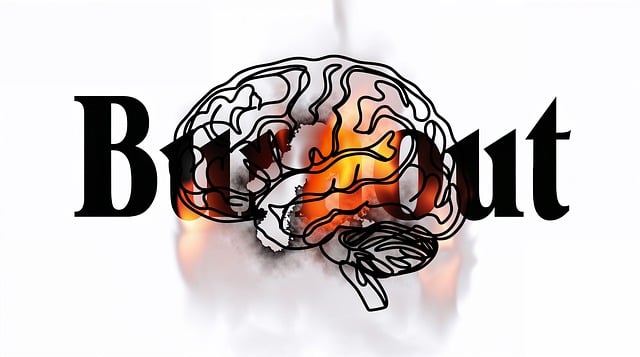Englewood Developmental Disability Therapy (EDDT) offers specialized approaches to address unique stress management challenges faced by individuals with developmental disabilities. They emphasize a nuanced understanding of triggers, employing individual therapy, community support, and mindfulness techniques. EDDT's evidence-based methods, like meditation and relaxation exercises, integrate into daily routines for stress reduction. They also educate mental health professionals on burnout prevention and risk management planning. Through structured environments, consistent routines, active listening, peer support, and caregiver resources, EDDT revolutionizes care practices, enhancing well-being for individuals and their caregivers.
Stress reduction is an essential aspect of holistic care, especially for individuals with developmental disabilities. This article explores effective methods to mitigate stress, focusing on both personal strategies and environmental adjustments. We delve into the profound impact of stress on developmental disabilities, highlighting the role of therapy in providing calming techniques. Additionally, we offer evidence-based practices and practical tips for caregivers and educators from Englewood Developmental Disability Therapy to foster supportive environments, ensuring optimal well-being.
- Understanding Stress and Its Impact on Individuals with Developmental Disabilities
- The Role of Therapy in Stress Reduction for Special Needs Individuals
- Evidence-Based Techniques for Calming the Mind and Body
- Creating a Supportive Environment at Home and School
- Empowering Caregivers: Strategies for Self-Care and Stress Management
Understanding Stress and Its Impact on Individuals with Developmental Disabilities

Stress is a universal human experience, but its impact can be significantly more profound for individuals with developmental disabilities. At Englewood Developmental Disability Therapy, we recognize that managing stress effectively is crucial for fostering well-being and enhancing daily functioning. These individuals often face unique challenges that can heighten their vulnerability to stress-related issues, such as anxiety or depressive disorders.
Understanding the root causes of stress in this population requires a nuanced approach. Simple stressors like changes in routine or environmental factors might trigger intense emotional responses. Moreover, communication barriers and limited coping mechanisms can exacerbate the situation. Therefore, implementing tailored strategies is essential, focusing on both individual therapy and community support systems. This may include incorporating relaxing activities, teaching mindfulness techniques, and enhancing public awareness campaigns to promote a more inclusive and supportive environment, ultimately contributing to better risk management planning for mental health professionals.
The Role of Therapy in Stress Reduction for Special Needs Individuals

For individuals with developmental disabilities, stress can manifest differently and may require specialized approaches to manage effectively. This is where Englewood Developmental Disability Therapy steps in as a powerful tool for stress reduction. Therapists trained in this field employ tailored techniques to address unique challenges, such as sensory sensitivities or communication barriers, often experienced by these individuals. Through individualized therapy sessions, clients learn coping strategies that go beyond traditional methods, exploring activities and behaviors that promote relaxation and emotional well-being.
In addition to therapy, Crisis Intervention Guidance plays a vital role in supporting special needs individuals during stressful situations. Teaching them skills for crisis management not only enhances their ability to navigate challenging circumstances but also empowers them to advocate for their own mental health needs. Moreover, incorporating Burnout Prevention Strategies for Healthcare Providers can be beneficial, as caregivers and professionals interacting with these individuals may face unique stressors. By integrating mood management techniques into their care plans, both the individuals and their support systems can foster a more resilient and balanced approach to stress reduction.
Evidence-Based Techniques for Calming the Mind and Body

In today’s fast-paced world, stress reduction methods are more crucial than ever for maintaining both mental and physical well-being. Englewood Developmental Disability Therapy (EDDT) emphasizes evidence-based techniques that have proven effective in calming minds and soothing bodies. These practices include mindfulness meditation, deep breathing exercises, and progressive muscle relaxation—all easily incorporated into daily routines to foster a sense of tranquility. By participating in Mental Health Education Programs designed with these methods in mind, individuals can learn to manage stress proactively, enhancing their overall quality of life.
Additionally, EDDT encourages the implementation of Risk Management Planning for Mental Health Professionals, which includes strategies to mitigate and respond to stressful situations. This proactive approach ensures that both practitioners and their clients are equipped with tools to navigate challenging scenarios, promoting a healthier work-life balance. Such techniques not only benefit individuals but also revolutionize care practices within the mental health sector.
Creating a Supportive Environment at Home and School

Creating a supportive environment is key to stress reduction, especially for individuals with developmental disabilities. At home and school, implementing simple strategies can significantly impact one’s well-being. For instance, at Englewood Developmental Disability Therapy, therapists emphasize the importance of structured yet flexible routines. Consistency in daily schedules helps individuals anticipate and prepare for changes, reducing anxiety and promoting a sense of security.
In educational settings, teachers play a vital role in fostering a compassionate atmosphere. Utilizing communication strategies that encourage active listening and empathy can create a safe space for students to express their feelings. Additionally, incorporating compassion cultivation practices, such as mindful moments or peer support groups, can help students develop emotional resilience and build a supportive community within the school environment.
Empowering Caregivers: Strategies for Self-Care and Stress Management

Caregivers play a vital role in supporting individuals with developmental disabilities, but it’s essential to recognize that this role can be demanding and stressful. Empowering caregivers through effective self-care practices is crucial for maintaining their mental wellness and ensuring they can continue providing high-quality care. Englewood Developmental Disability Therapy offers valuable resources and strategies tailored to this unique challenge.
One of the key aspects of caregiver support is teaching communication strategies that foster open dialogue and reduce tension. By promoting healthy communication between caregivers and individuals with disabilities, Trauma Support Services can be integrated seamlessly, addressing any past or present traumatic experiences. These services aim to create a safe and supportive environment, enabling caregivers to manage stress levels and enhance their overall well-being.
In addressing stress reduction methods, particularly tailored for individuals with developmental disabilities, it’s clear that a multi-faceted approach is key. By understanding the unique impact of stress and leveraging evidence-based techniques, therapy, and supportive environments, we can significantly enhance well-being. Englewood Developmental Disability Therapy underscores the importance of empowering both caregivers and loved ones with effective self-care strategies. Integrating these practices at home and school fosters a nurturing tapestry that calms minds, soothes bodies, and promotes resilience, ultimately revolutionizing how we support those with special needs.














